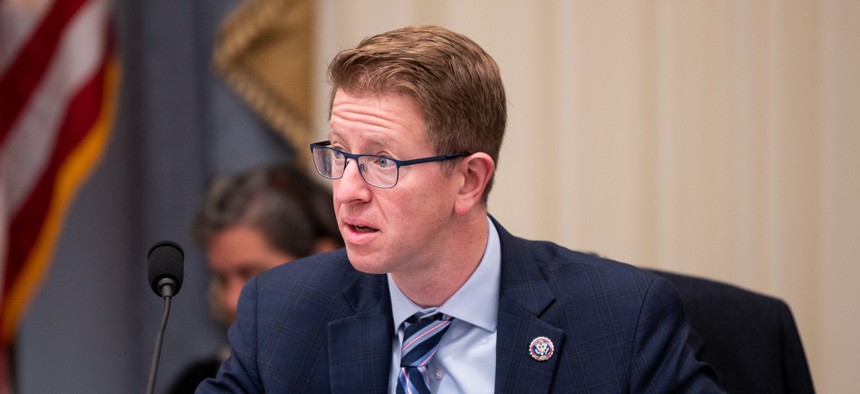Panel votes up House modernization plan

Rep. Derek Kilmer (D-Wash.) chairs a 2021 hearing of the Modernization Committee Tom Williams/CQ-Roll Call, Inc via Getty Images
In its final meeting, the House Select Committee on the Modernization of Congress passed 24 recommendations to improve the performance of legislative member offices and committees.
The House of Representatives could be in line for a tech upgrade covering its own operations and constituent services tools.
The Select Committee on the Modernization of Congress voted on Thursday to adopt 24 recommendations laid out at a July hearing to improve the services members provide to those they represent. This is the ninth and possibly the last slate of recommendations passed by the bipartisan committee, which expires at the end of the current session of Congress.
"[C]hange doesn't happen overnight, especially in a place like Congress, but I think that the small changes over time can lead to the kind of cultural shifts that make a big difference," Committee Chairman Rep. Derek Kilmer (D-Wash.) said at a Sept. 14 hearing of the panel. "What started as a one‑year sprint for this committee turned into a four‑year marathon, and I am grateful that we were given the time to do the work necessary to create long‑term change."
The recommendations look to institutionalize and standardize technological tools available to members of Congress to a far greater extent than is currently the case. Right now, individual member and committee offices have a great deal of latitude when it comes to managing their own technology acquisition and delivery.
The modernization committee is recommending that the House chief administration officer, who supervises the House tech and acquisition chiefs, develop an "Established Delivery Partners" system to offer access to solutions and vendors that have experience working with Congress. The committee also wants the House to make its tech acquisitions more public and transparent, while making it simpler to award contracts and onboard vendors.
Additionally, the committee is recommending that the House make its hackathons and technology innovation events and initiatives permanent fixtures of the institution and ensure internally developed digital tools are open source by default. The committee also wants to establish an advisory board to assist with the operations of the recently established House Digital Service.
On the constituent services side, the committee is pressing for systems that allow member offices to aggregate and analyze casework data to examine the effectiveness of current service offerings and make suggestions for improvements. The committee also wants to speed the development of tech platforms to manage constituent correspondence as well as separate systems to handle common activities like scheduling tours and managing constituent flag requests.
All the recommendations were adopted unanimously by the committee, which is the only panel in Congress that is equally divided between Democrats and Republicans.
NEXT STORY: Digital identity bill heads to the Senate floor






